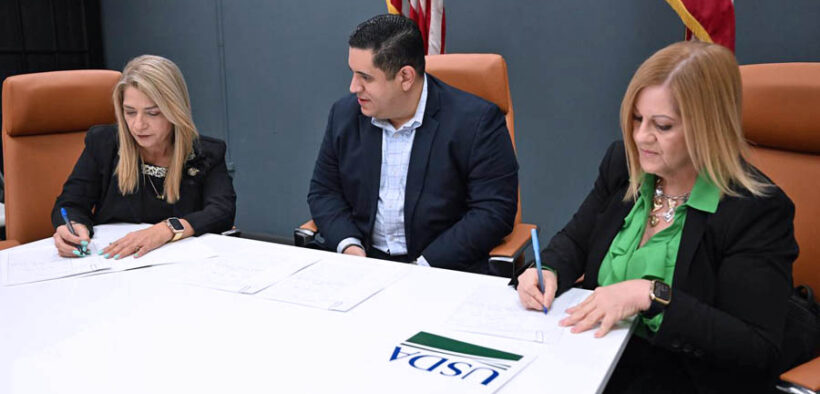USDA transfers 3K acres of farmland to Puerto Rico Land Authority

The land will be leased to local farmers to support food security and rural development.
In a major effort to expand access to farmland in Puerto Rico, the U.S. Department of Agriculture (USDA) is transferring 84 farms — totaling more than 3,000 acres — to the Puerto Rico Land Authority for lease to local farmers, local and federal agriculture officials said.
The transfer, which began in late 2024, is being carried out by the USDA’s Farm Service Agency (FSA). Five additional farms were formally delivered this week, bringing the total transferred to 15. The rest are expected to be handed over in the coming months.
“These lands represent an invaluable asset to the Land Authority, as they can be leased to farmers who so desperately need them to continue agricultural development,” said Helga Méndez-Soto, executive director of the Land Authority. “Requests for land are high, and availability is scarce, so farmers will have an opportunity to benefit from these lands.”
The initiative responds to a growing demand for agricultural land on the island, where availability remains limited. The transferred properties have been identified as having high agricultural and conservation value. They will be protected from commercial and residential development and prioritized for local food production.
Wanda Pérez, FSA State Executive Director, said the goal is to ensure the lands remain productive and serve rural communities for generations to come.
Puerto Rico Agriculture Secretary Josué E. Rivera emphasized the broader implications for rural development and food security.
“With this initiative, we are strengthening food security, incentivizing the rural economy and continuing to invest in agriculture as an engine of economic development,” Rivera said. “It’s a giant step toward ensuring that our lands continue to produce and that our youth have a real space to start their agribusinesses.”












